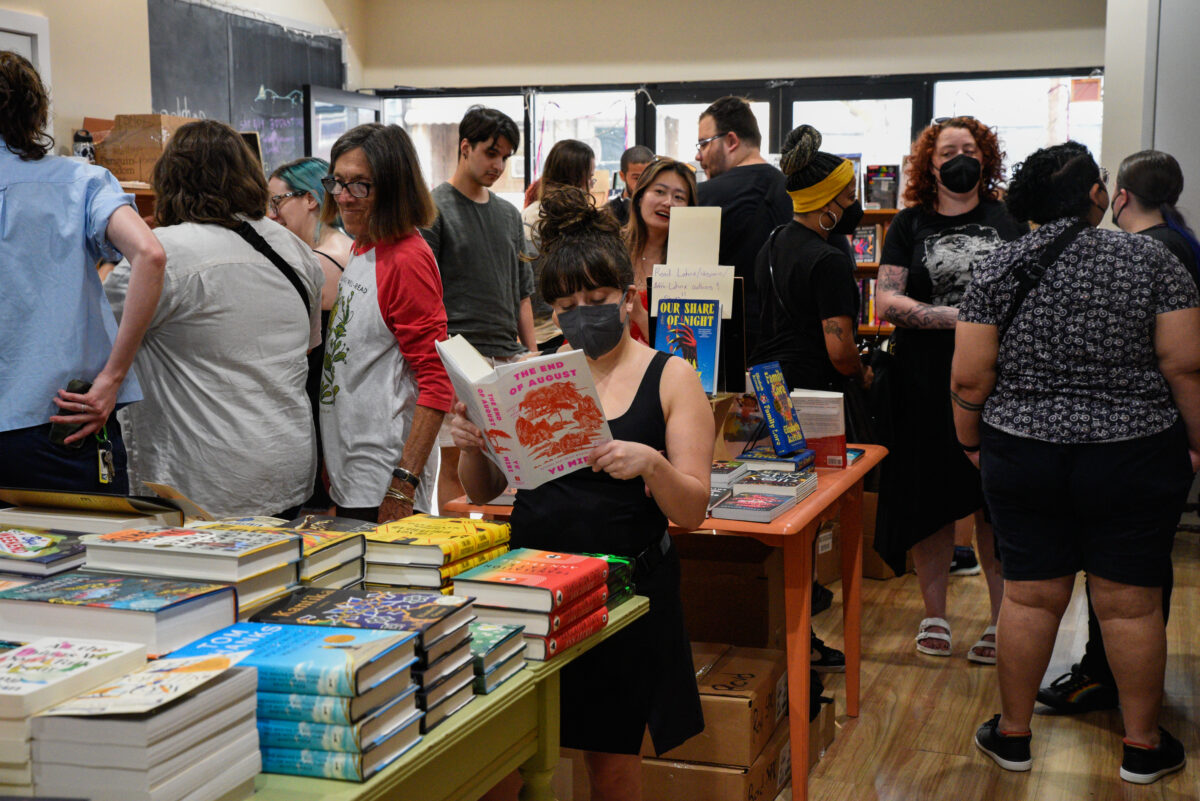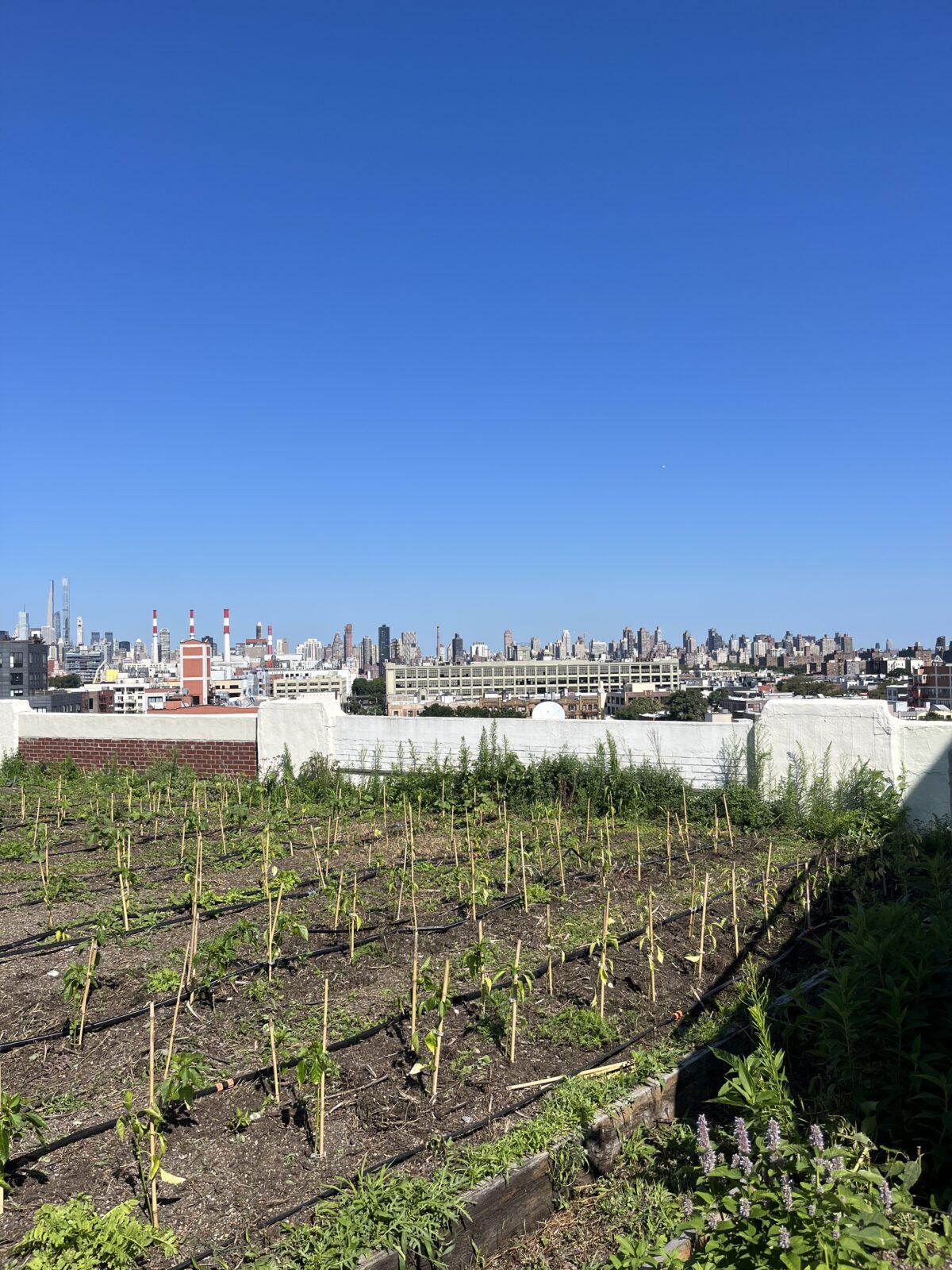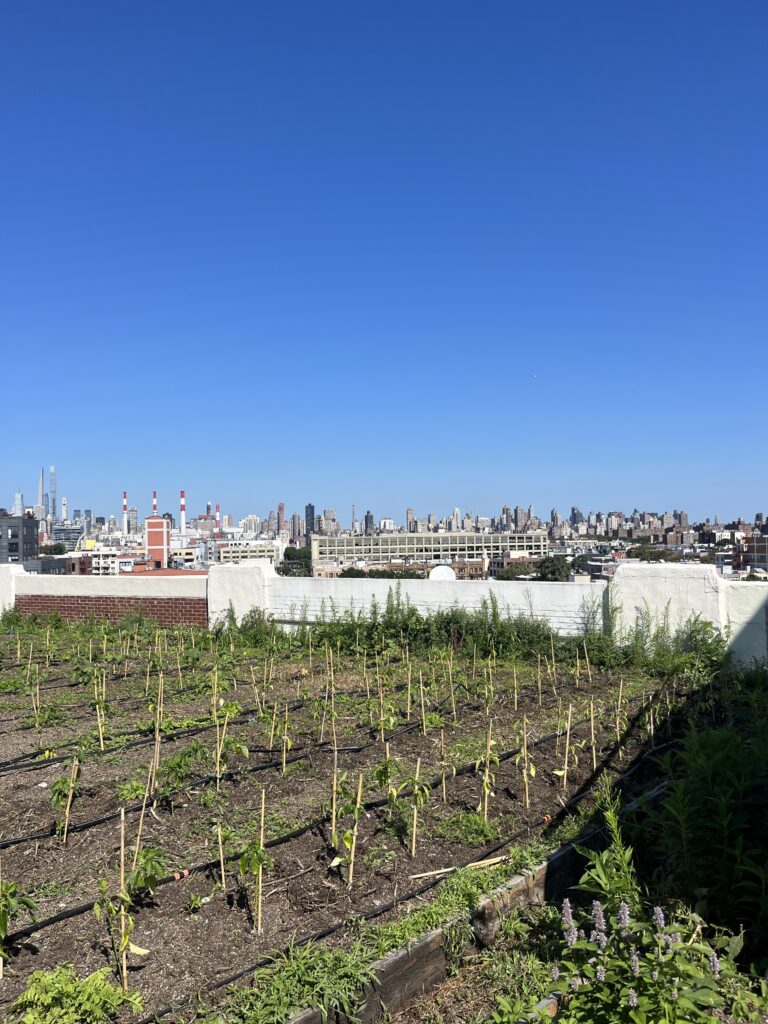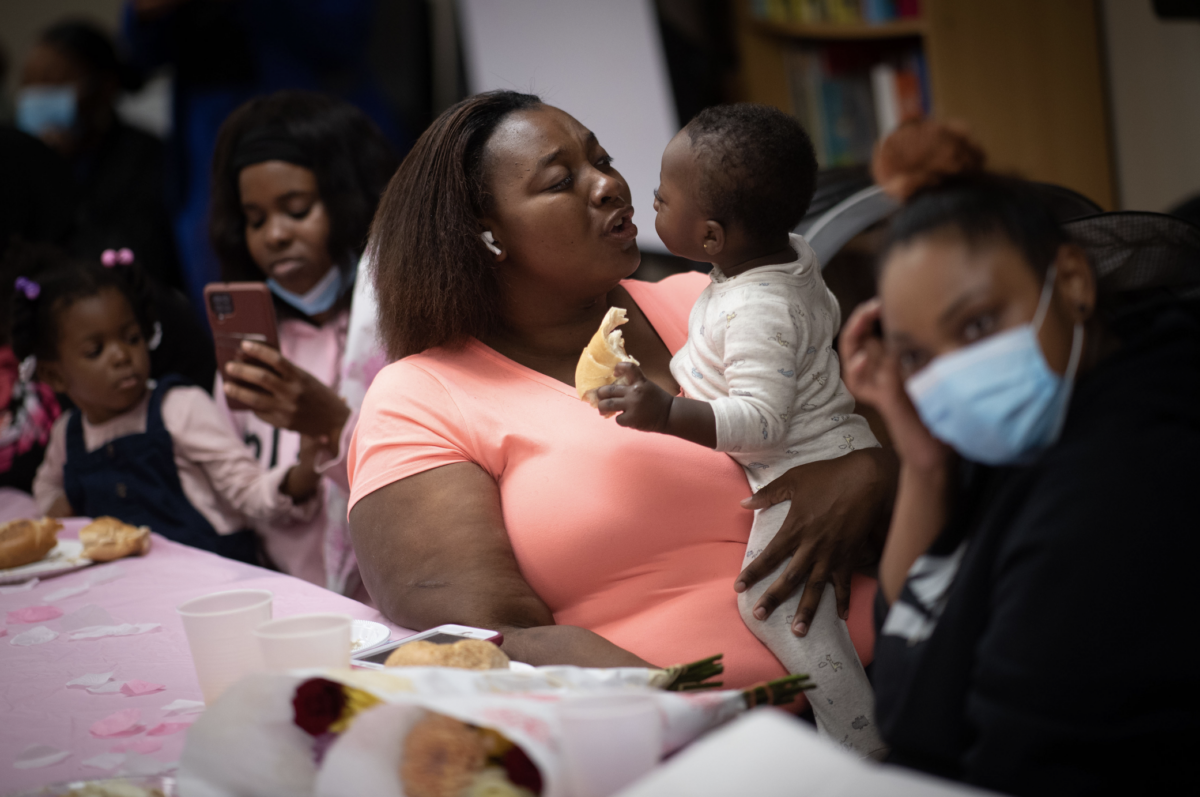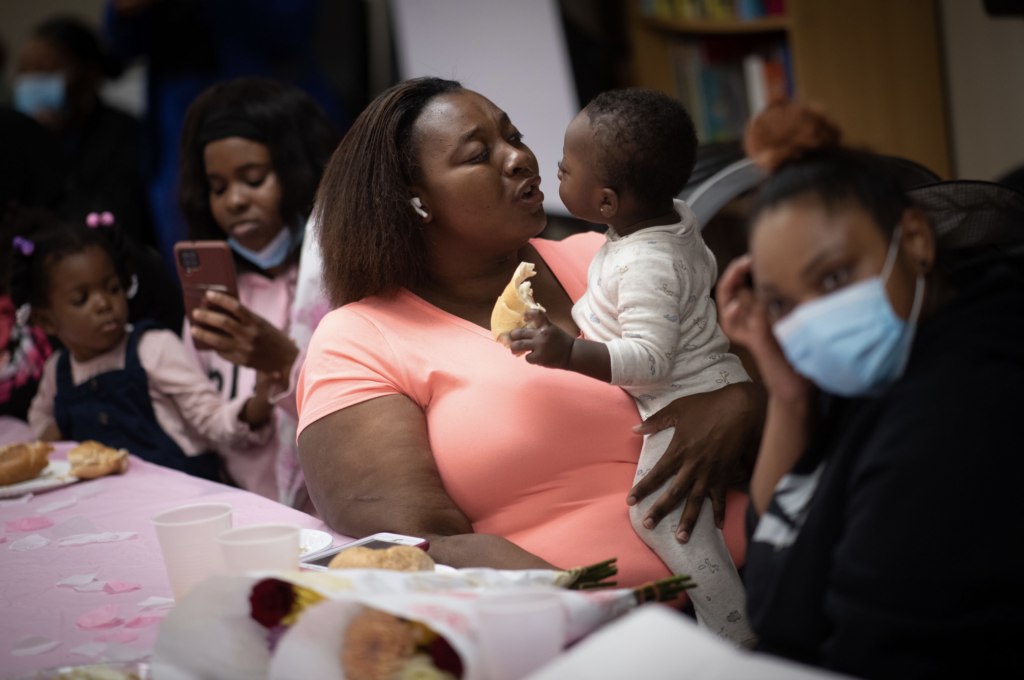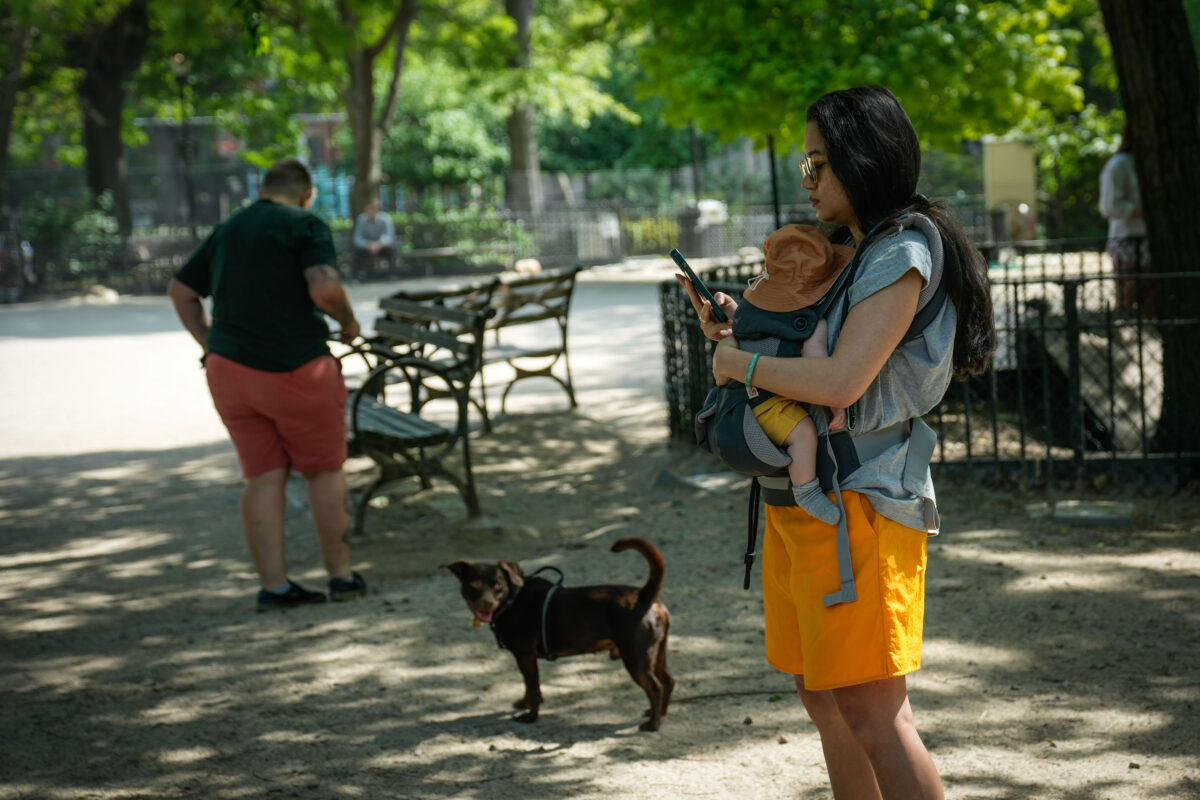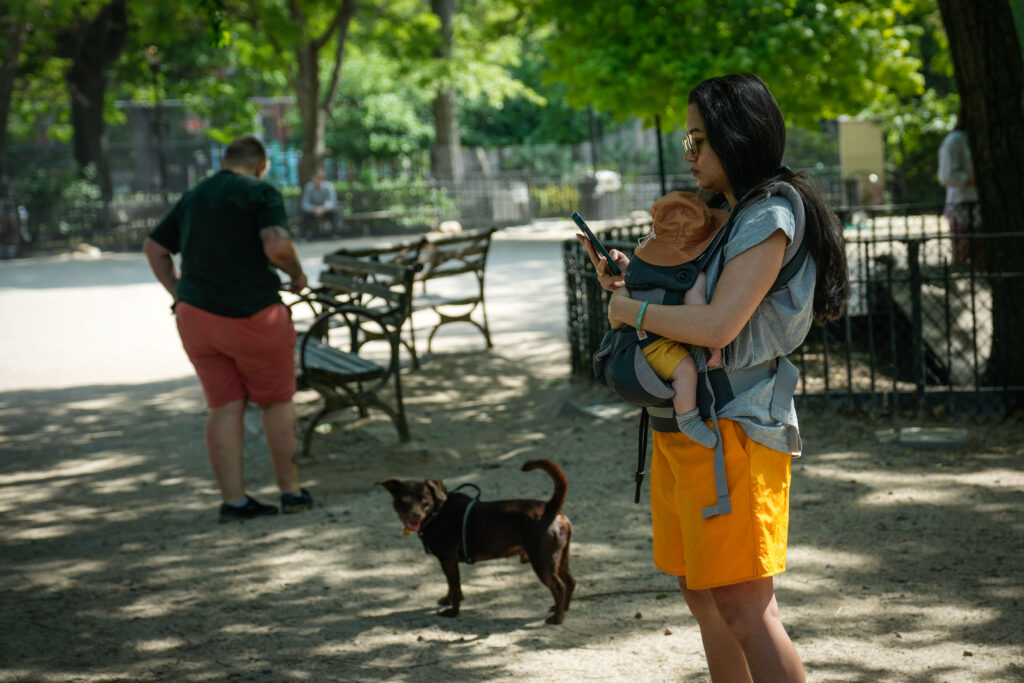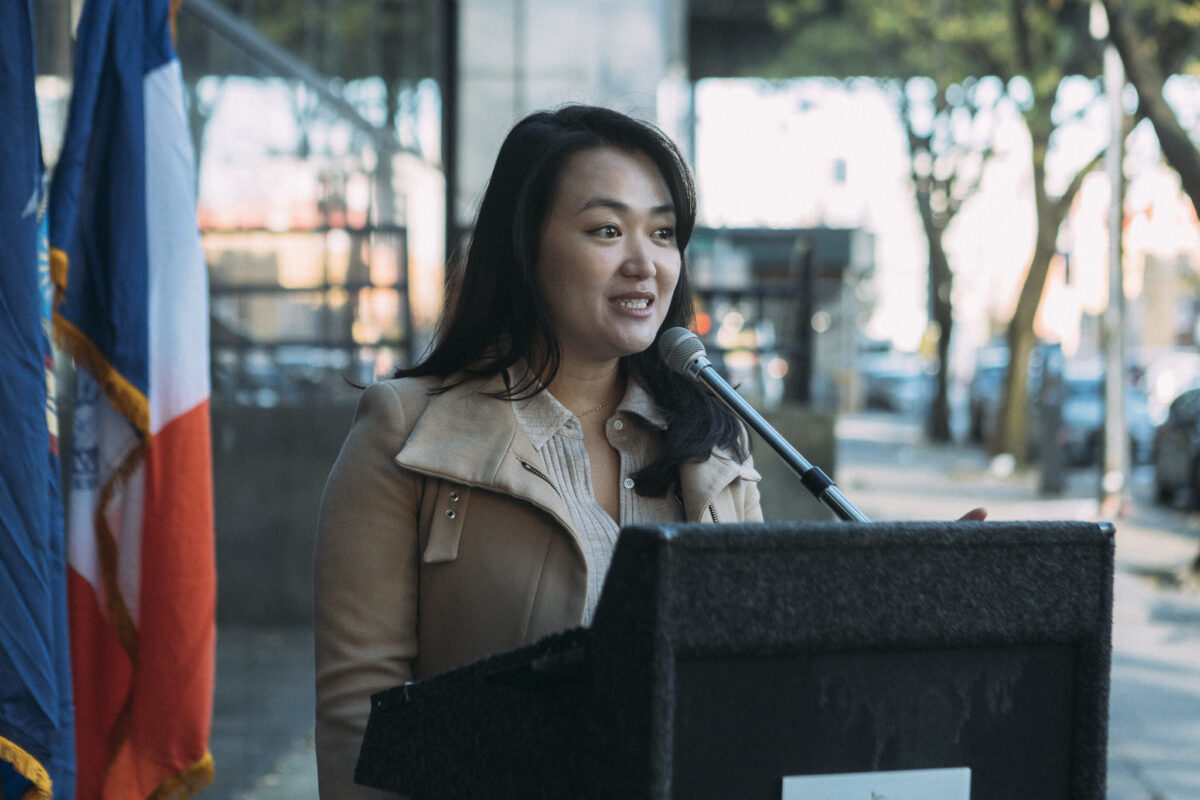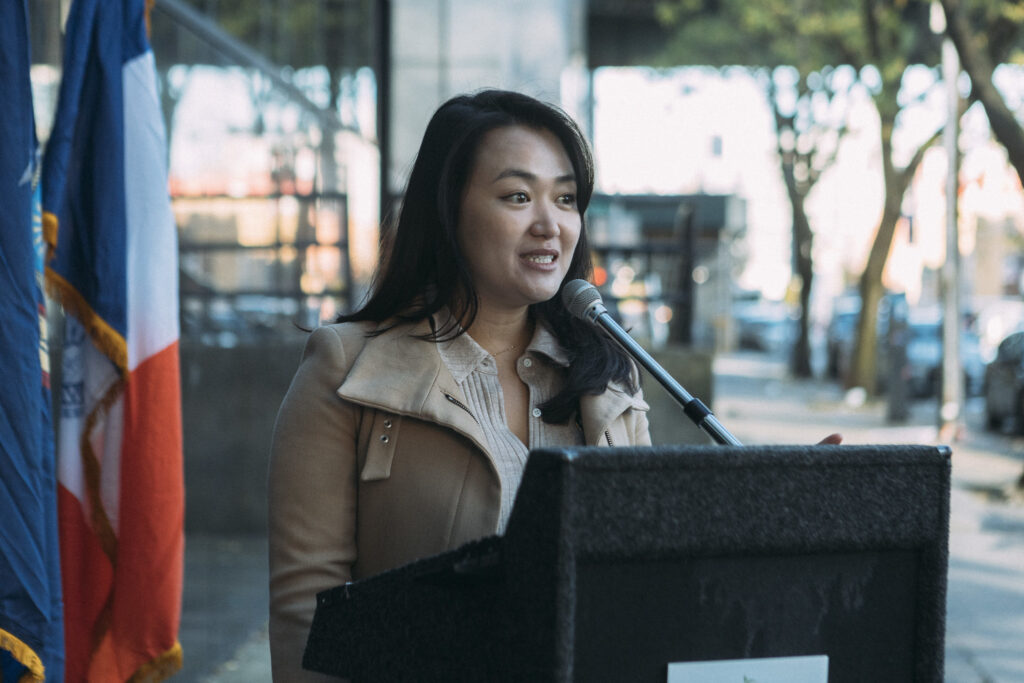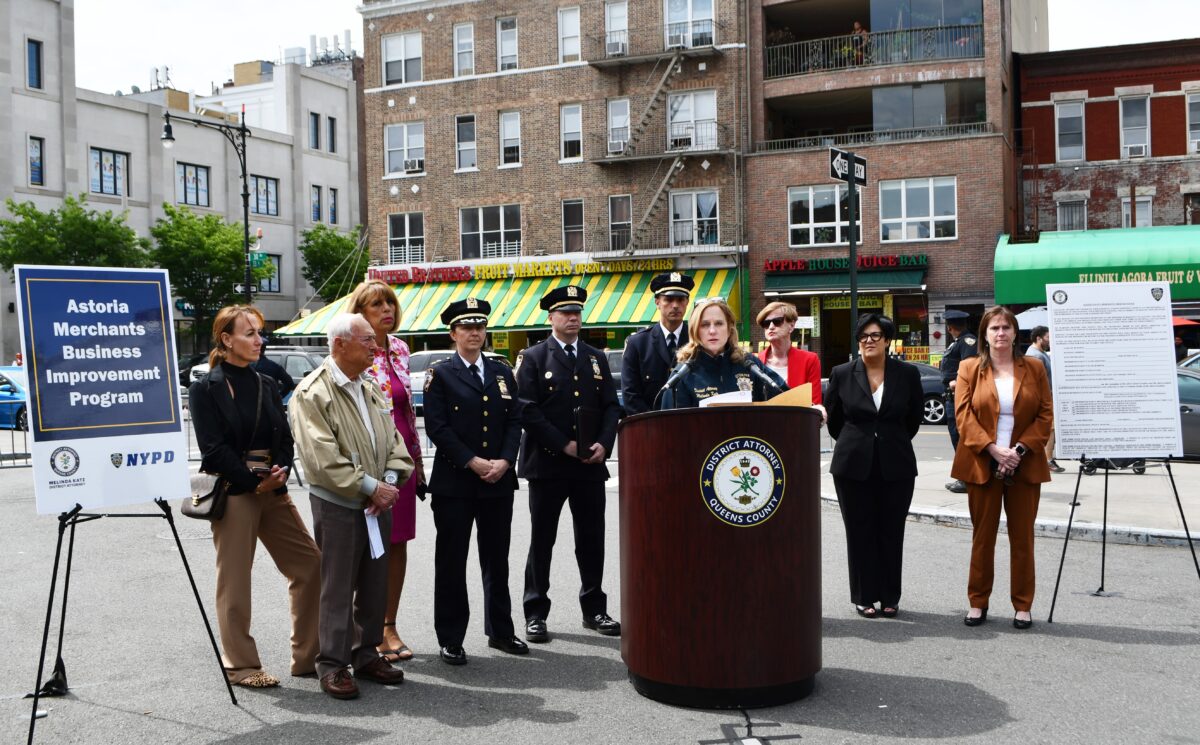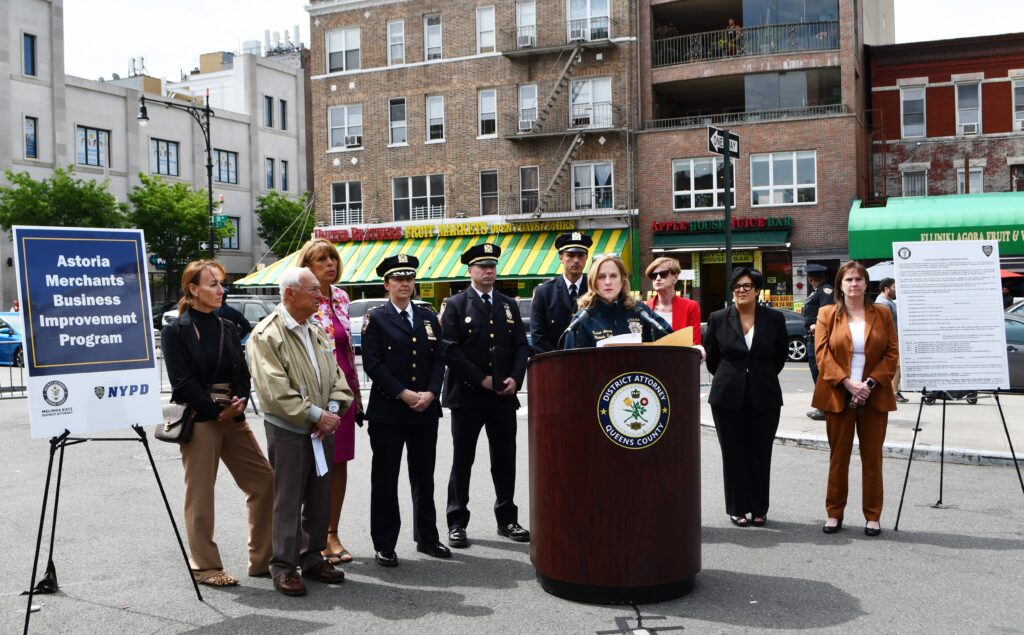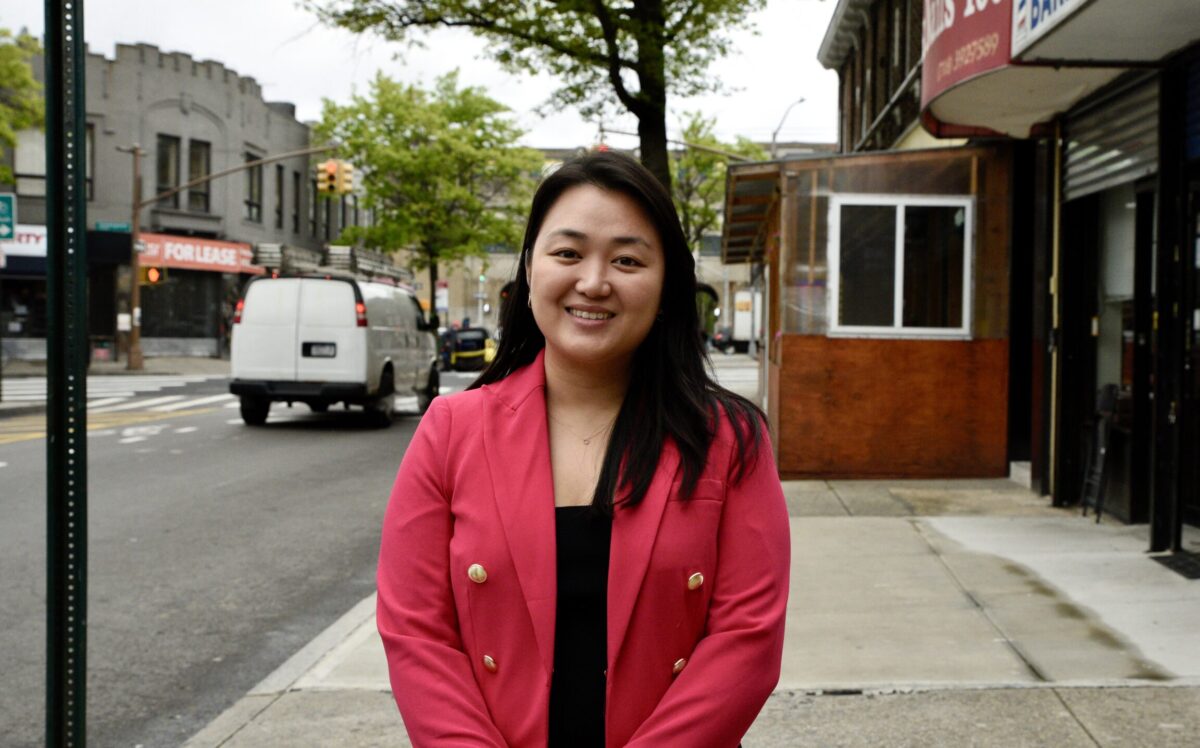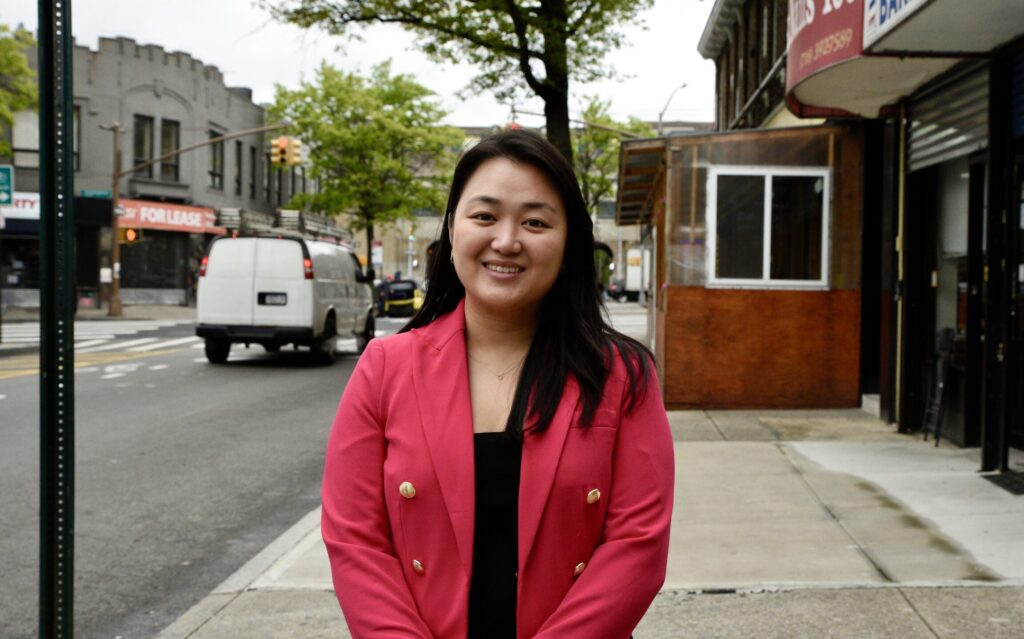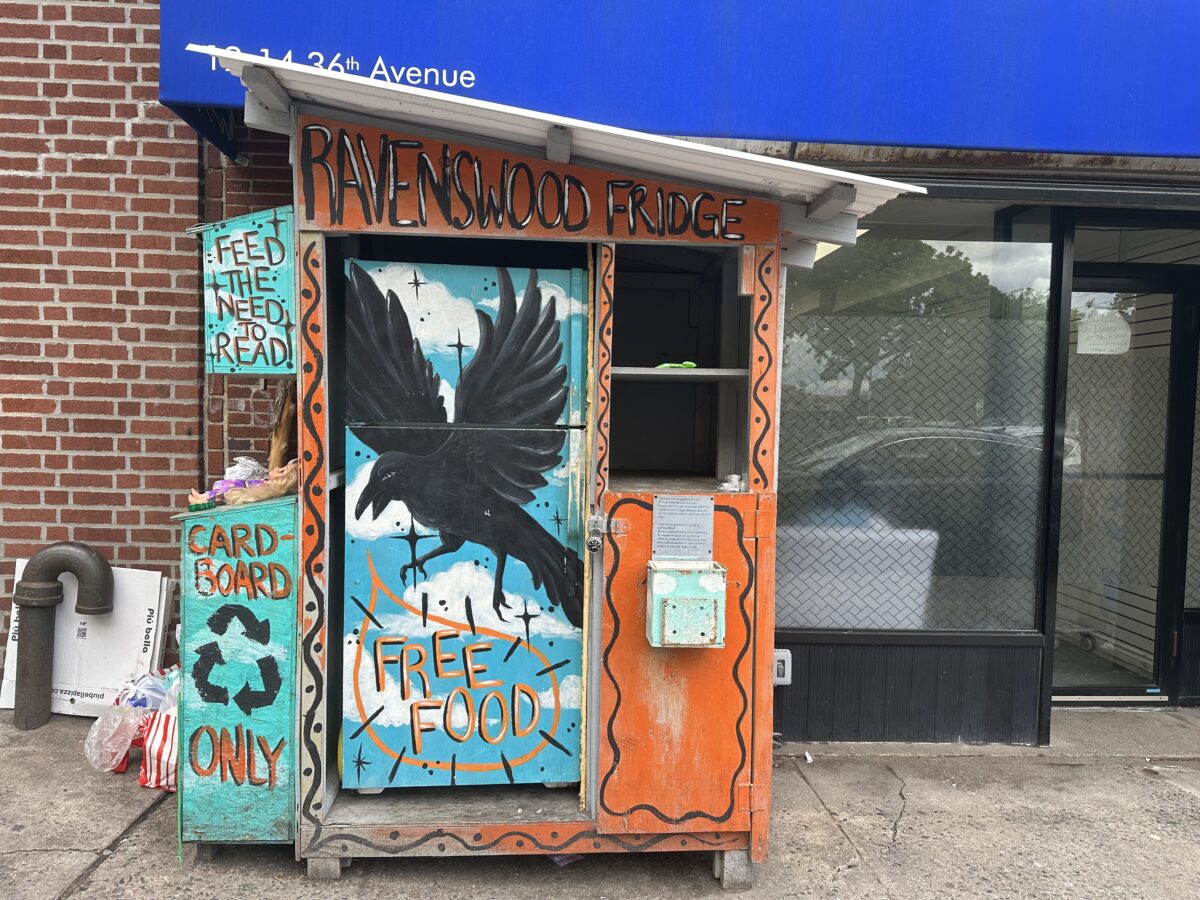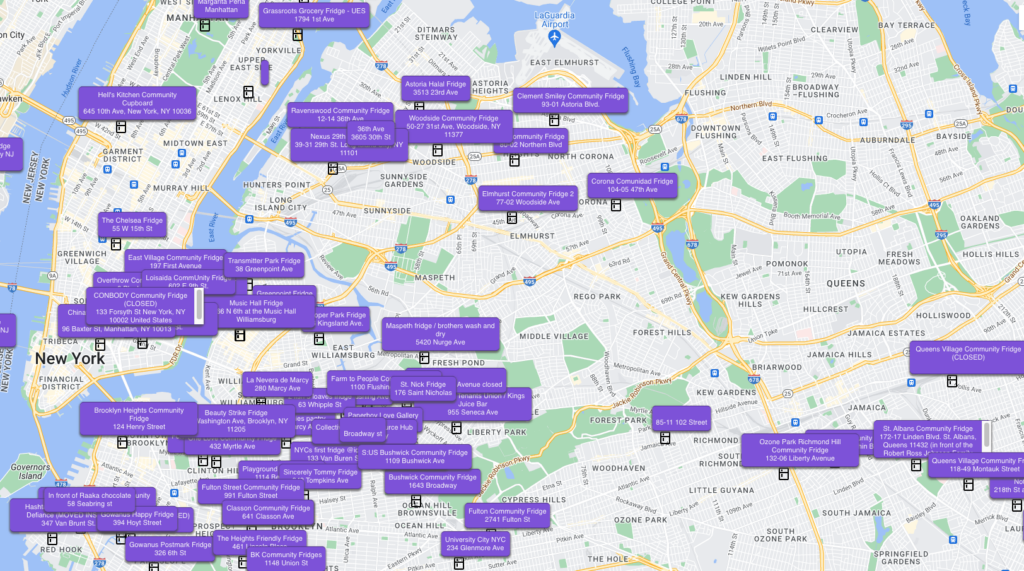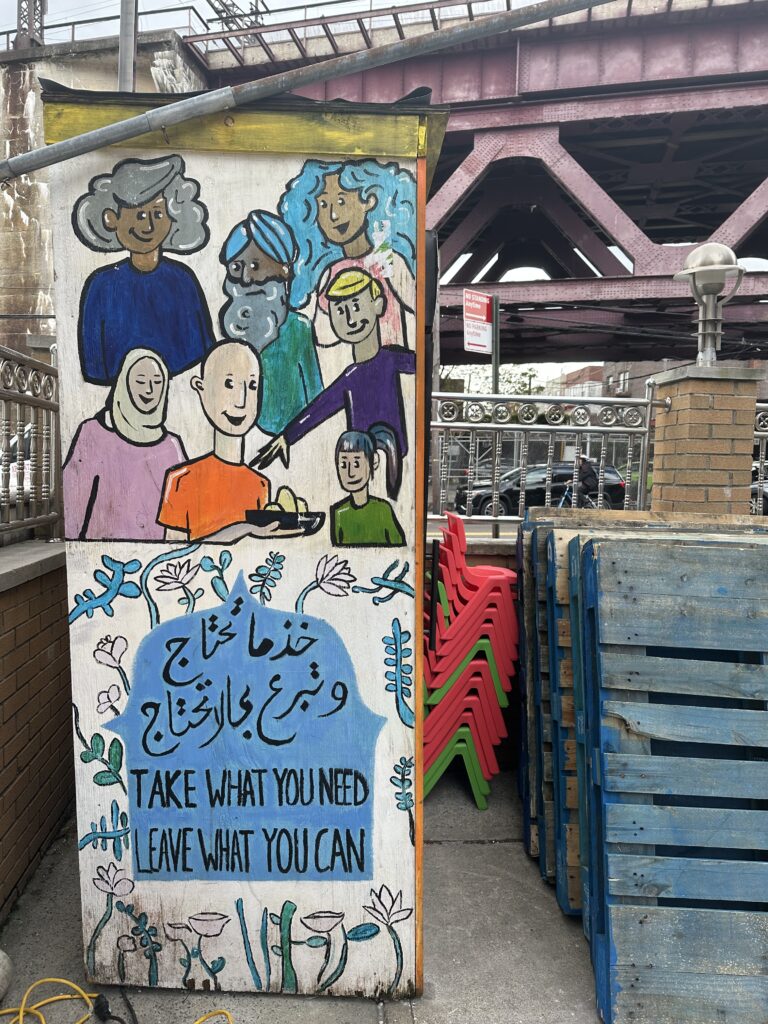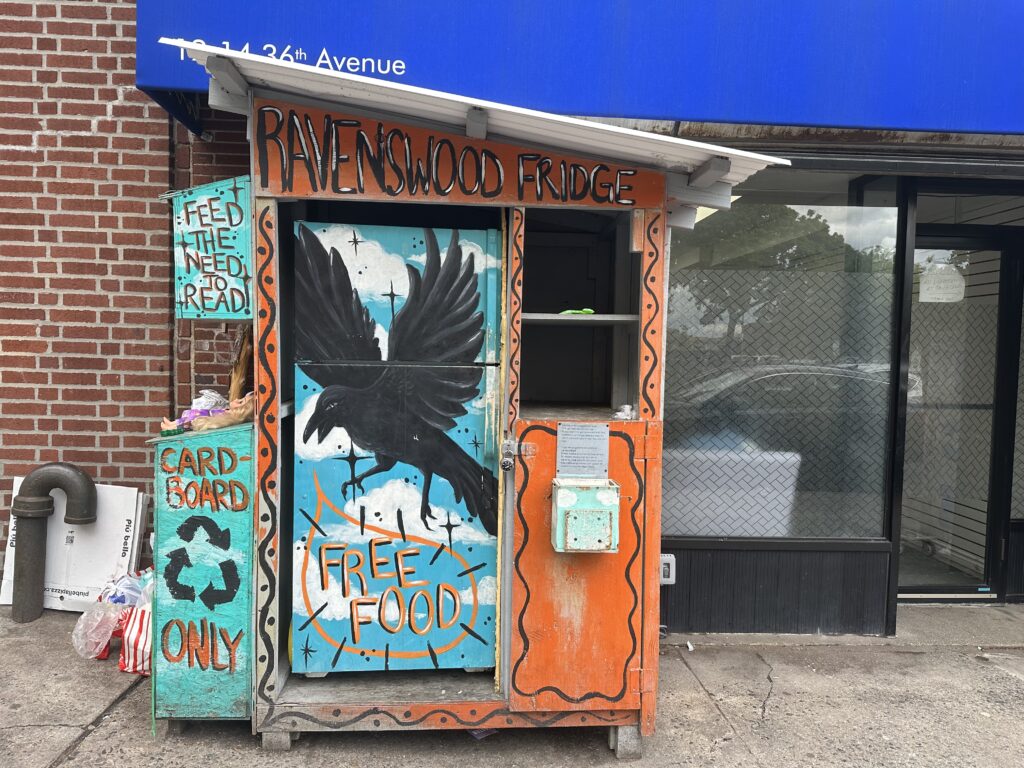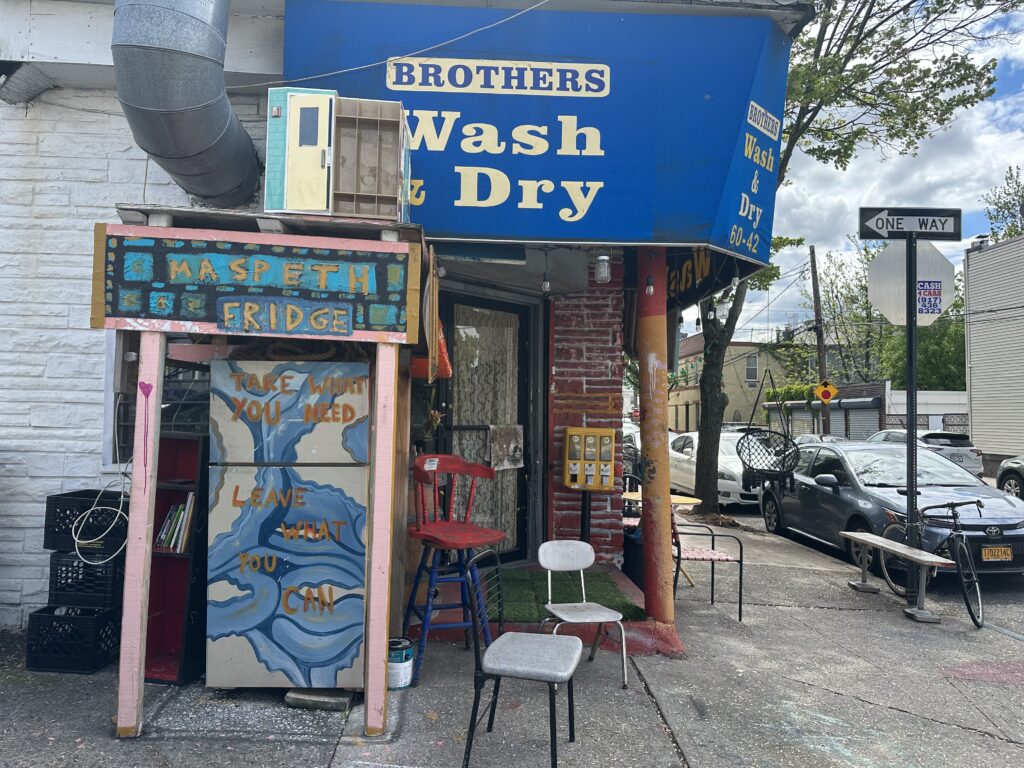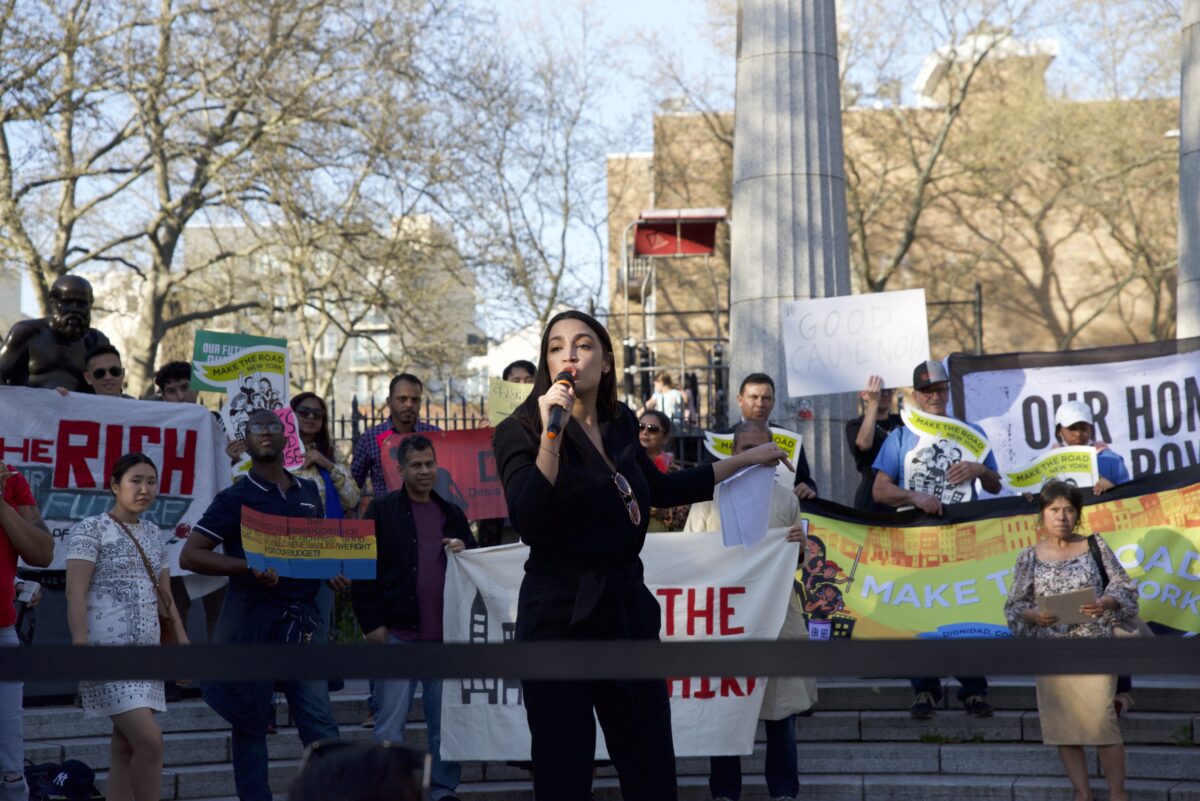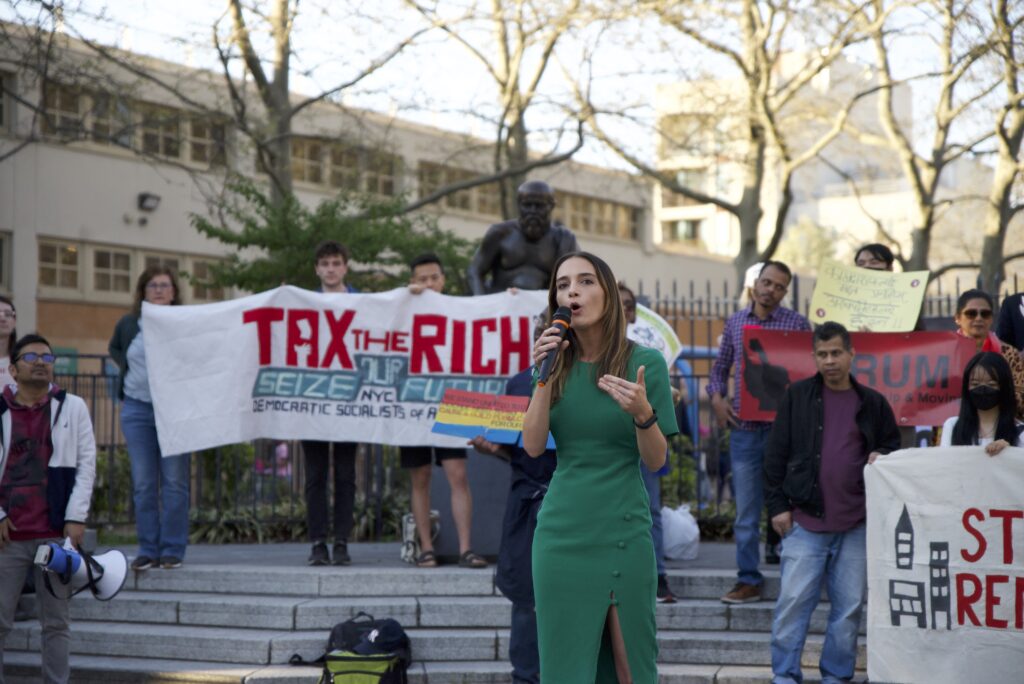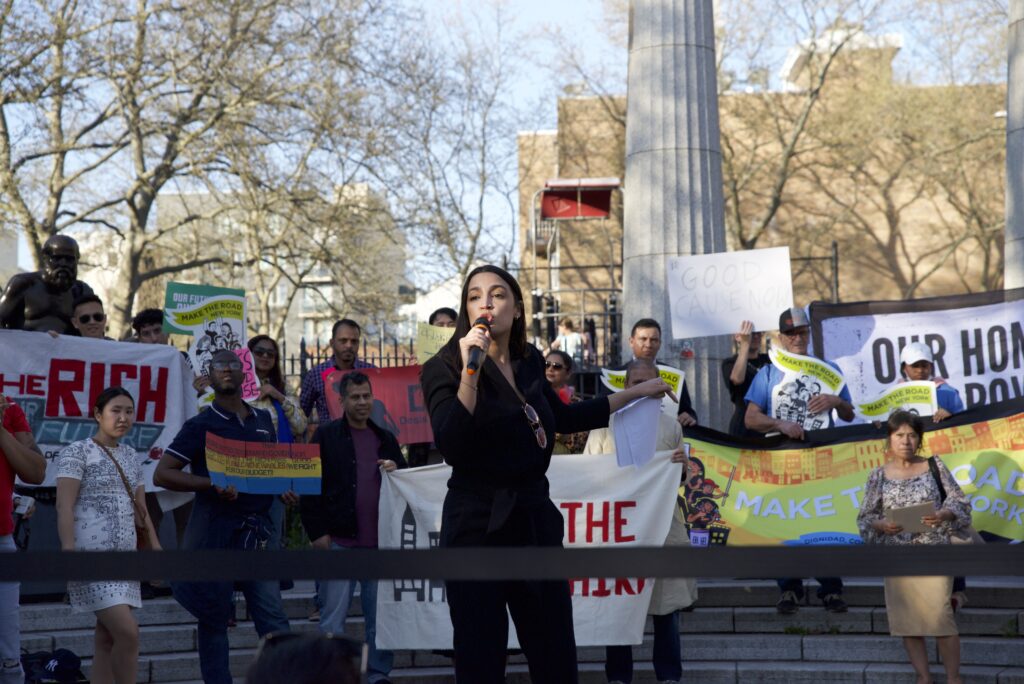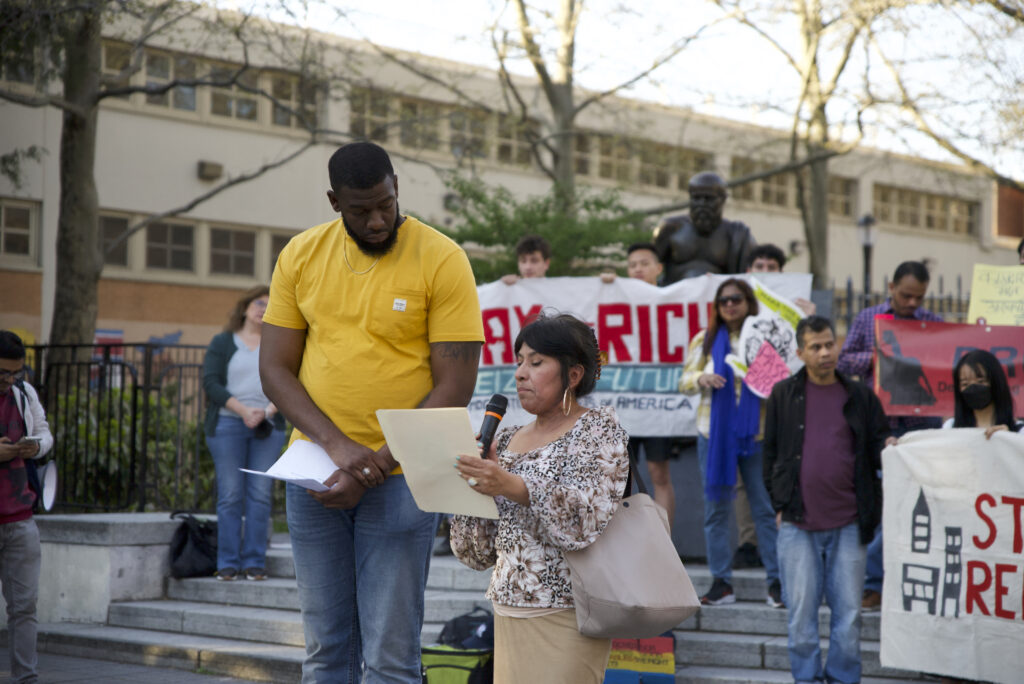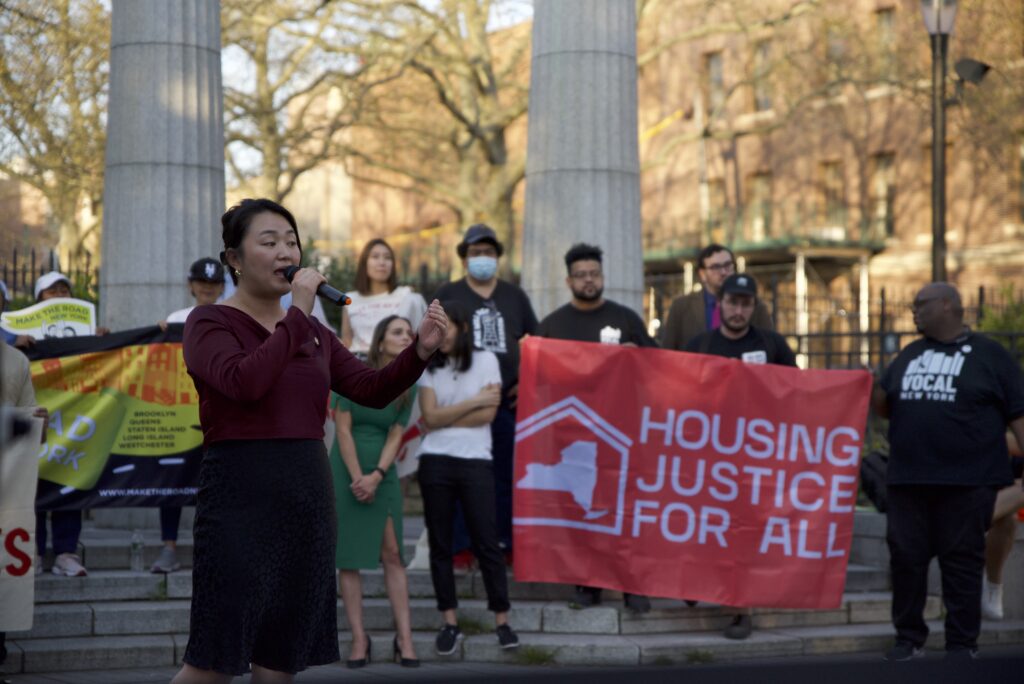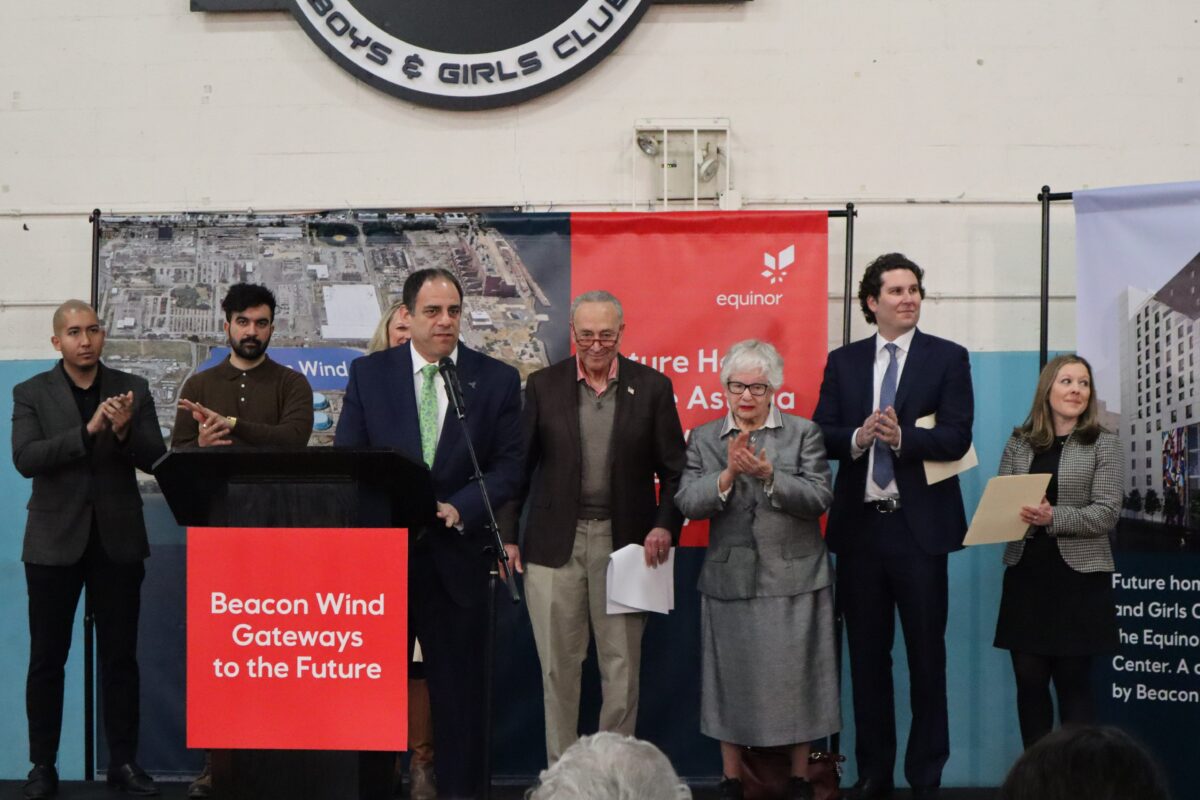Astoria Bookshop Turns Page on 10 Years
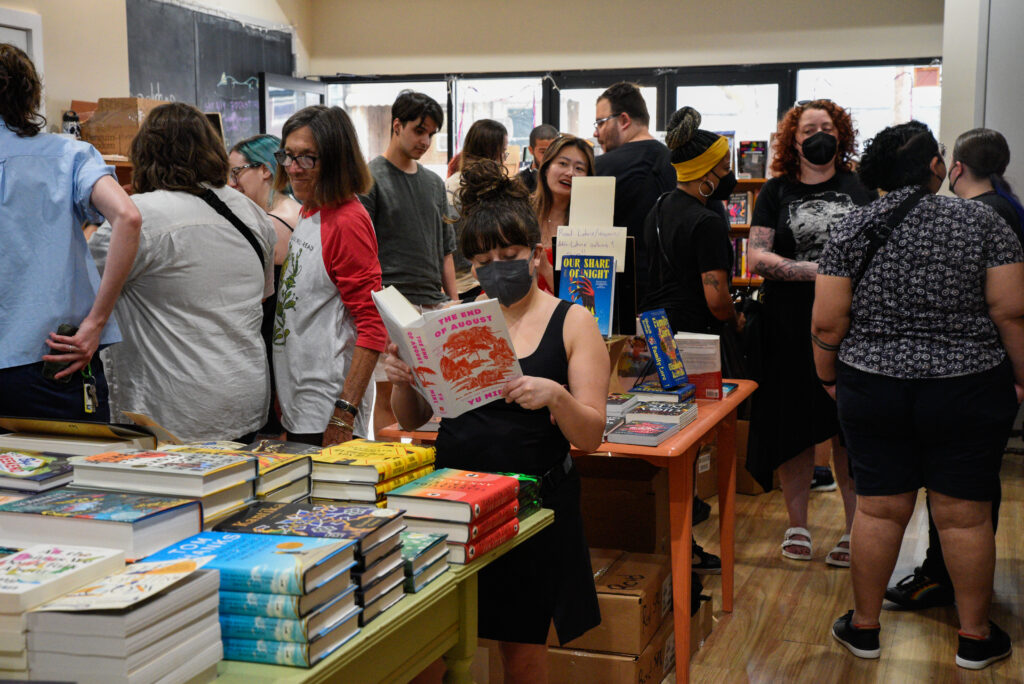
Guests filled up the shop to celebrate 10 years since the bookshop opened in Astoria. Photo by Iryna Shkurhan
By Iryna Shkurhan | ishkurhan@queensledger.com
Astoria Bookshop celebrated their 10 Year Anniversary on Monday, as well as a grand reopening in a new location, with an all day celebration featuring special guests and activities.
For close to a decade, Astoria’s only bookstore was stationed on 31-29 31st Street. The queer and woman-owned shop opened for business on August 21, 2013 and has generated many bookworm regulars who could browse a wide selection in an intimate space. But earlier this spring, the books moved less than a mile away to their new home at 36-19 30th Street.
“For the past two years we’ve just been bursting at the seams,” said the store’s founder and owner Lexi Beach. “We just didn’t have room to carry everything.”
The new location is 40 percent bigger and has a garden with seating for guests to enjoy their newly purchased reads. Beach says that the bigger location has given her, and the seven other booksellers, the chance to play around with fun new subsections and stock more books in each category. The reaction to the new location has been split down the middle. Some of her regulars complain that she’s further away now, while others are glad that their trip to the shop got shorter. But everyone is happy about the new garden, especially the dog owners.
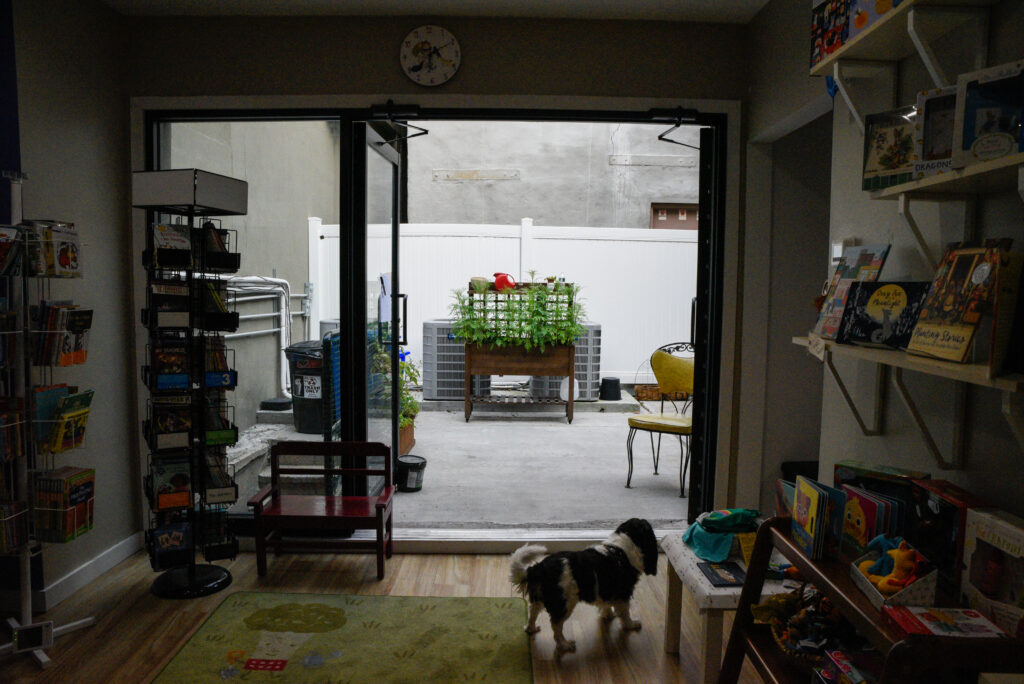
The garden has several seats and is dog friendly. Photo by Iryna Shkurhan
The party started with a storytime for the kids in the morning, and a station to create their own bookmark afterwards using cut out shapes from advance copy picture books. Meg Jones-Wall, of 3am Tarot and the author of Finding the Fool: A Tarot Journey to Radical Transformation, was also available for tarot readings in the garden in the evening.
Casey McQuiston, author of the bestselling novel Red, White & Royal Blue, was another popular guest. Their book, which was adapted into a film this year, centers around the son of America’s first female president falling in love with a prince of England, and having to keep it under wraps. Fans of the queer novel had the chance to ask McQuiston their questions about the book, or for new recommendations.
Even City Councilmember Tiffany Caban, who represents Astoria and other western Queens neighborhoods, briefly stopped by the celebration.
Since day one, customers have been able to order their books online to be shipped directly to their home, or picked up in store. But since the initial opening, more and more people have ordered their books online, even if they live nearby in Astoria. The shop has even shipped books to all six continents.
“Still, most of our business comes from here and most of our business is in person. It has not changed. And I don’t think that’s really going to change,” said Beach, who believes that the physical space of a bookstore, especially one that offers community events, cannot be replaced.
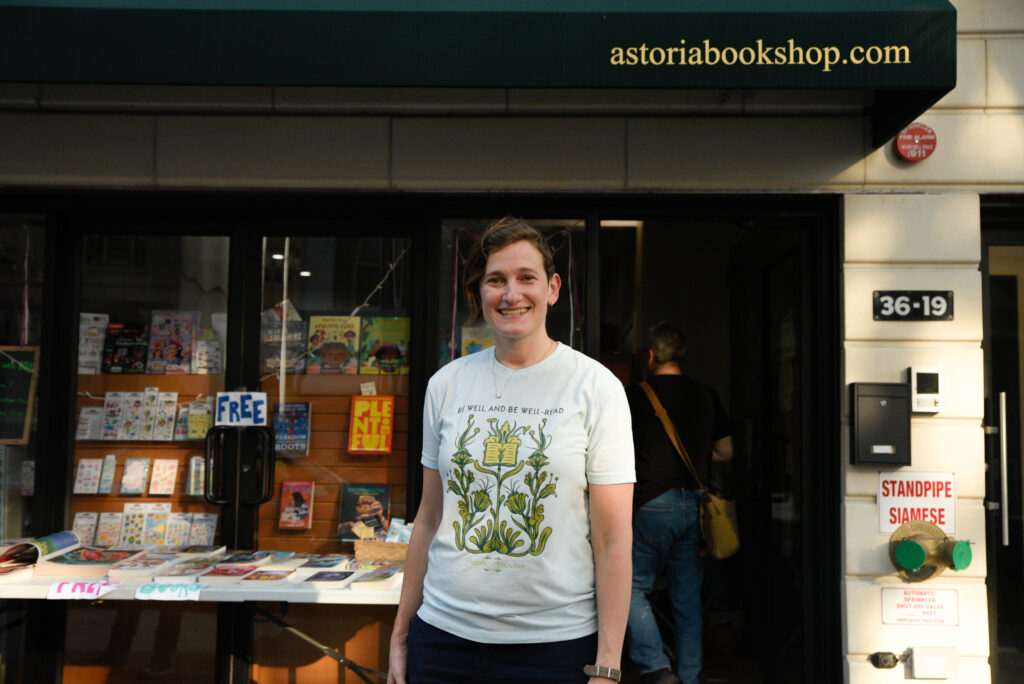
Lexi Beach previously worked in the book publishing industry before taking the leap and starting her own business. Photo by Iryna Shkurhan
The shop frequently hosts authors for various readings and meet and greets, as well as storytelling for kids. She says that giving people another reason to visit the bookstore, since most people are not buying a new book every week or even every month, is central to her mission.
“The first steps that I took trying to open a bookstore were so much easier than I thought they would be. And so much easier than trying to find my next publishing job,” said Beach, who worked a range of roles in the book publishing industry for close to a decade before taking the leap of starting her own business. “I was like, oh, maybe this is the direction that I’m supposed to go in.”
That knowledge of the book world easily transferred over to her current duties of meeting with book representatives, and selecting what titles will fill up the shelves and tables.
Her liberal arts degree in Spanish literature has also come in handy. She’s able to chat with Spanish speaking visitors and guide them through the growing Spanish speaking section, with books for both adults and kids.
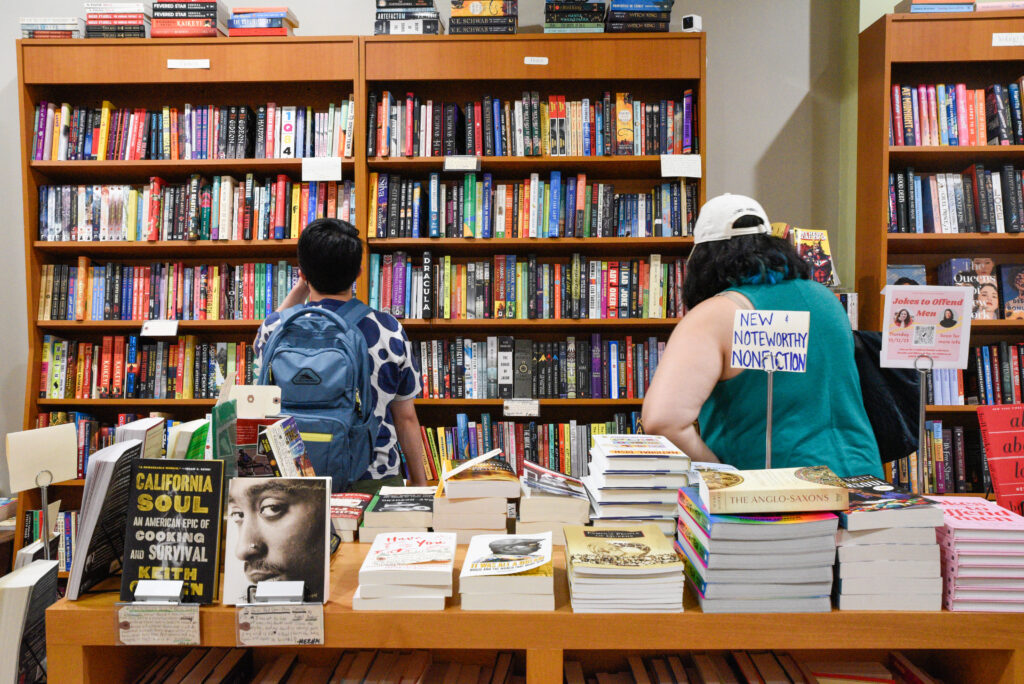
Visitors browse the shelves. Photo by Iryna Shkurhan
“Even on the toughest day, it’s still better than any other job I’ve had,” said Beach, who lives on the Upper East Side with her wife and dog.



